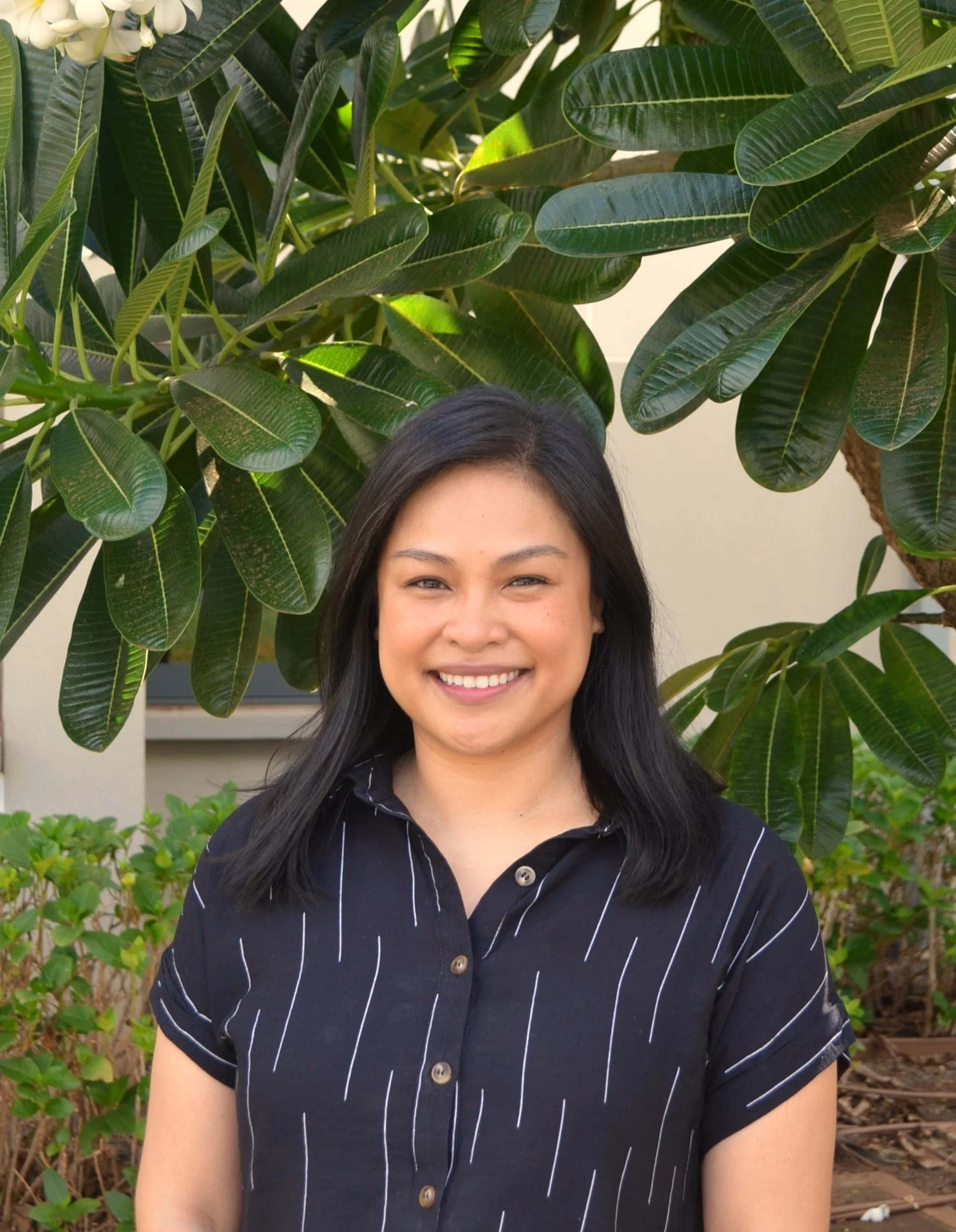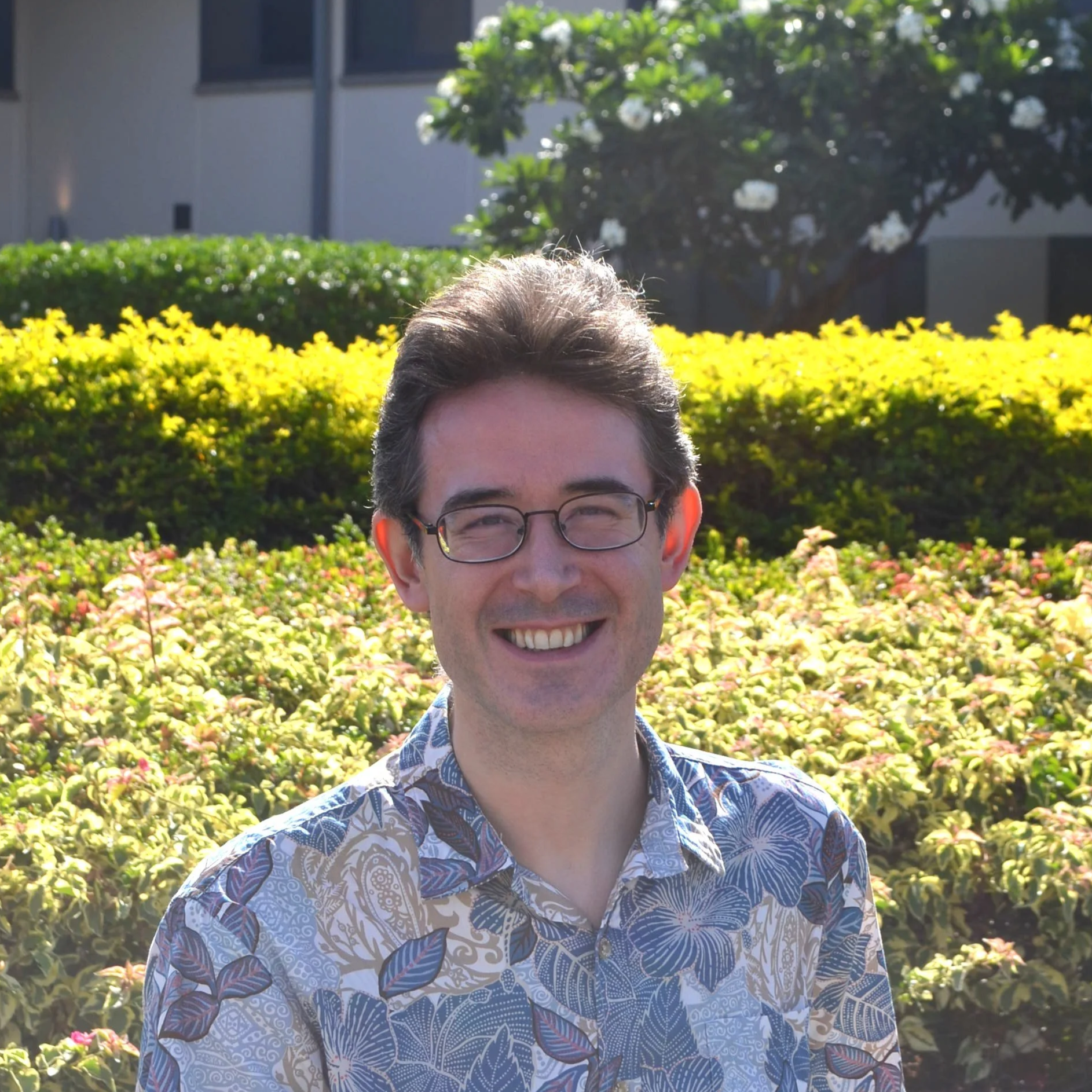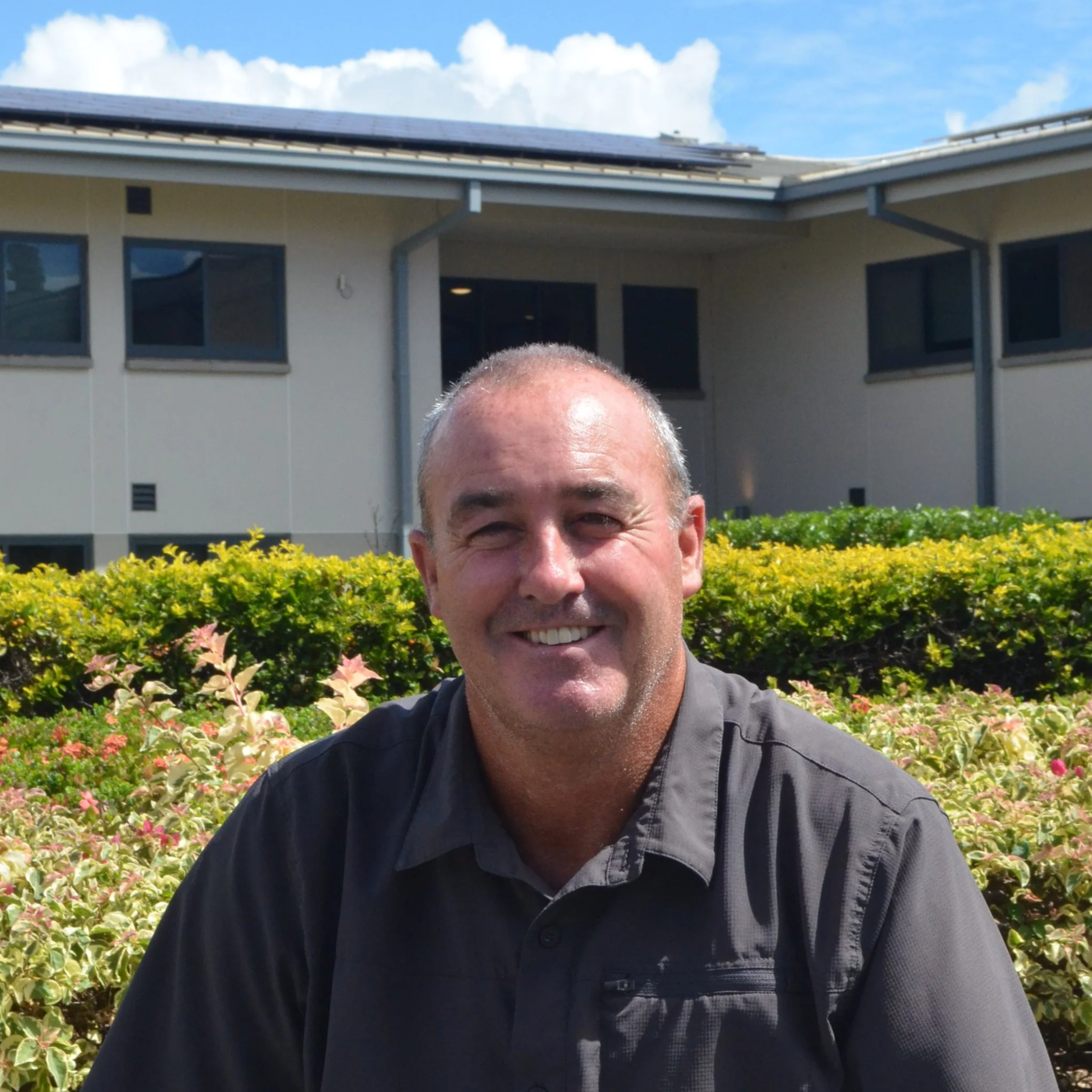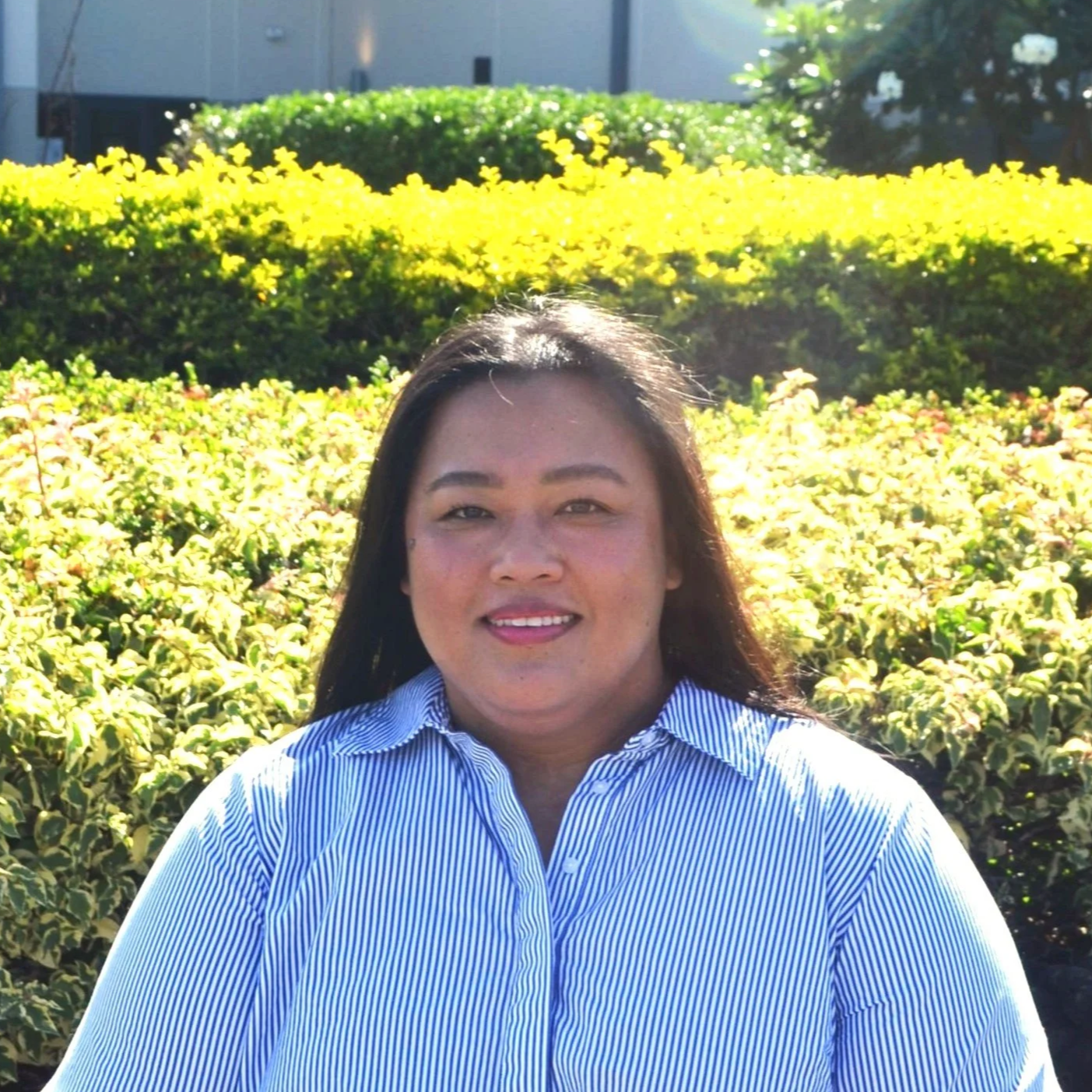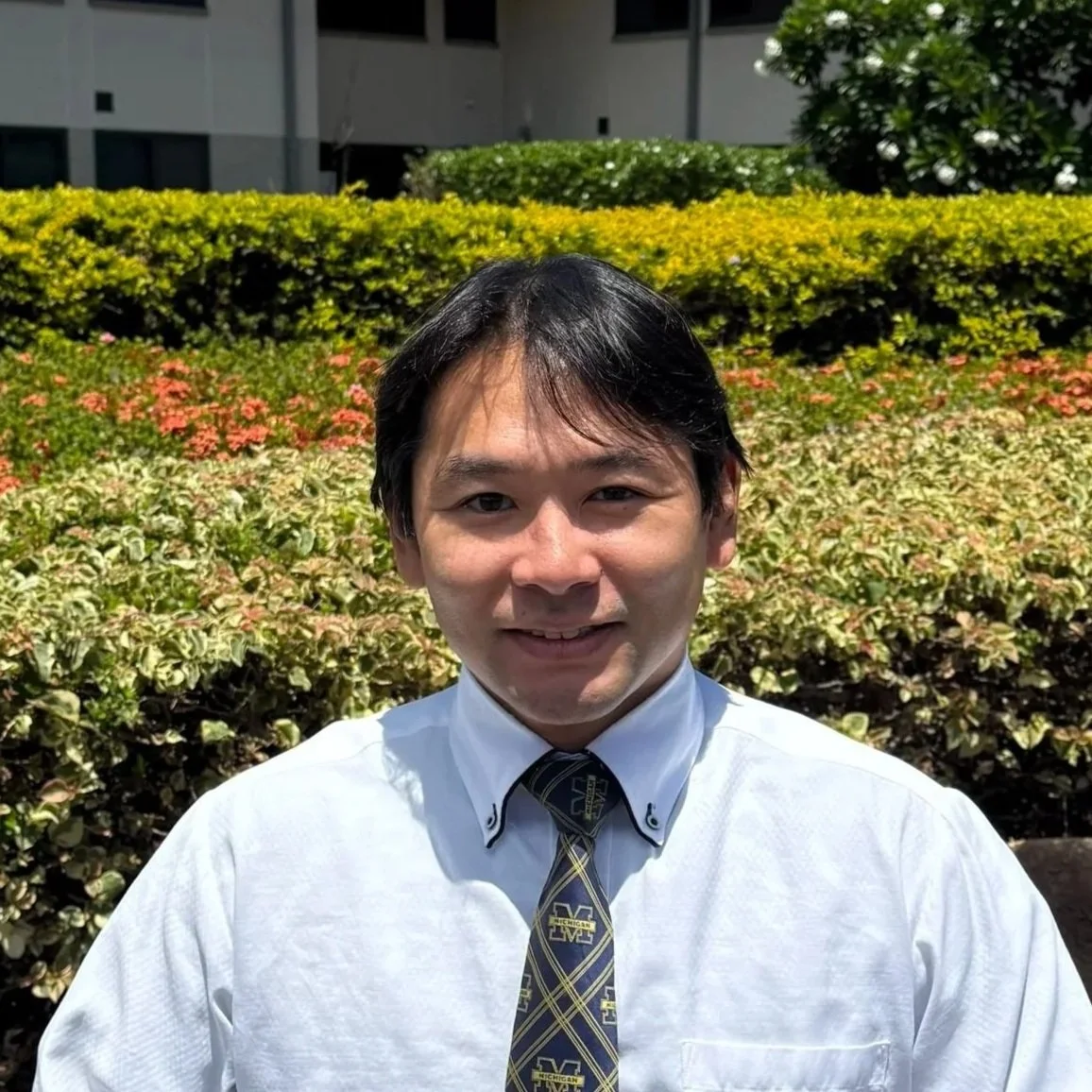Faculty Directory
Get to know some of our faculty members, listed in alphabetical order by last name. We are proud that 100% of our faculty bring international experience to the classroom, and each has a unique story to share.
Vanessa
College Preparatory Program
-
ESL, EAP, AI in education
-
BA, Media and Communications
MA, TESOL (Teaching English to Speakers of Other Languages)
MS, Learning Design and Educational Technology
-
Vanessa’s journey has taken her from the Philippines to the United States, Korea, France, Japan, and beyond. With every move she embraced new cultures, languages, and communities, and she knows firsthand the challenges her students face. “I know what it is like to arrive somewhere new without knowing the language or having a community yet,” she says. With 19 years of experience as an ESL teacher, she takes learning seriously because, as she puts it, “That was me at one point. I had to learn a language, and I know what it is like to adapt to a new place.” That perspective fuels the empathy she brings into the classroom.
For Vanessa, teaching is never just a transfer of knowledge. “I am learning from my students all the time,” she explains. Former students once hosted her as she backpacked across Europe, opening their homes and families to her. She later studied at the Sorbonne and spent nearly a decade in France, lived in Dubai’s Sustainable City where her apartment appeared in one of her textbooks, and taught in Tokyo. Each experience deepened her sense of resilience, curiosity, and cultural adaptation, qualities she now encourages her students to embrace as they step into new environments.
Change, she believes, is the most powerful driver of growth. “Every time I look back, stepping into the unknown always led me to something better,” she reflects. Outside the classroom, Vanessa channels that same energy into learning design, building educational tools, and leading workshops that introduce people to new technologies. Her message to students is simple: “Change will always feel scary, but it is also the thing that helps you grow.”
Jon Beadle
Liberal Arts Program
-
English Literature, Composition, and Creative Writing
-
MA, English, California State University, Northridge
-
Jon takes his experiences in being new to a foreign land as a lesson in connection and perspective.
Jon grew up in rural England before moving to Los Angeles, a shift from a quaint, uniform community to one of the most distinct cities in the world. “In England, everyone I knew was English,” he says. “Then in L.A., suddenly everyone was from everywhere. It was a big change.” That contrast shaped how he thinks about belonging. In the United States he was the person from England. Back in England he was seen as American. “In both places, I felt like an outsider” Jon reflects. “But that gives you perspective.”
Now teaching in Hawaiʻi, he draws on that experience to help students think critically about culture and identity. When his class reads The Great Gatsby, he asks them what the American Dream looks like from their point of view. “For students from Japan, their answers are very different from someone who grew up in the United States, and that difference is the point.”
Jon also emphasizes the importance of recognizing common ground. “Generational ideas about race, gender, or technology may look different, but you realize students share more connections than they think.”For him, literature is a way to explore those connections. “It is not about a single right reading,” he says. “It is about navigating perspectives and finding meaning across cultures.”
Danilo Marrone
College Preparatory Program
-
TOEFL, History, Copy Editing, Google Apps (2013-2023)
-
BA, Liberal Arts, St. John’s College, New Mexico
MA, History, Uppsala University, Sweden
-
Raised across Sweden, Pakistan,, and Chile, and later teaching in Tunisia, the Netherlands, and Sweden, Nilo (Danilo) describes himself simply as a global citizen. Moving between cultures showed him that while traditions and customs may differ, people everywhere share the same hopes: family, dignity, and joy. “Living in so many places showed me that every culture has something amazing to offer,” he says.
Nilo implements the lessons of shared common experiences among his own students. “It’s something I give back naturally.” Nilo's international experience is the epitome of global citizenship and he does not hold back in extending that knowledge to his students. “If I can share that in the classroom with my students, that’s a good thing.”
One of the ways he connects with life in Hawaiʻi is through the shaka. For Nilo, it is more than a casual greeting. “There is the mellow shaka, the strong shaka, the playful one,” he explains. “The way someone throws it tells you about their personality.” To him, the shaka reflects a spirit of warmth and openness that is deeply woven into local life. It reminds him that small gestures can carry big meaning, just like the everyday acts of kindness he has experienced around the world.
“In Tunisia, my neighbors made me dinner every night for six months,” he recalls. “That is when you realize people just want to share, to live full lives with their families.” He hopes students leave his classroom with that same sense of curiosity, empathy, and respect for others.
Jaysievel (Jay) Pacpaco
College Preparatory Program
-
TESOL (Teaching English to Speakers of Other Languages), language teaching and pedagogy, materials development, curriculum design
-
BA, International Relations, Hawaiʻi Pacific University
MA, TESOL (Teaching English to Speakers of Other Languages), Hawaiʻi Pacific University
-
Jay's empathy and attention towards student education stem from her international experiences that span multiple countries such as the Philippines, Korea, Japan, and so many other places.
Jay was born in the Philippines and grew up in Hawaiʻi, surrounded by languages and cultures. In high school she studied Japanese for four years, then chose International Relations at Hawaiʻi Pacific University. A summer at Sungkyunkwan University in Seoul sealed it. “I felt, this is what I want to do. Live in an international environment and meet people from everywhere.” Planning a return to Korea, she caught herself: “I realized just because I speak English does not mean I know how to teach English.” She stayed for an HPU master’s in TESOL and discovered her path as a teacher.
Instead of moving abroad, Jay began teaching at language schools in Honolulu. Students arrived from Japan, Korea, Brazil and across Europe. “I did not need to go abroad. Everyone comes here.” At HTIC, she now channels that same energy into teaching academic English and critical thinking, shaping lessons around student goals. “The first step is knowing what students need to do, then building toward it.” She brings local perspective into class and into field experiences, sharing Hawaiʻi culture alongside vocabulary and structure. Her message to learners is simple and personal. Growing up, she wishes she had practiced her parents’ language more. “Put yourself out there. Do not be afraid to make mistakes.” She keeps in touch with former students, points current ones toward mentors, and celebrates every small win. For Jay, the classroom is a place to discover purpose, connect cultures, and turn practice into confidence.
Kristi Smith
Liberal Arts Program | Accreditation
-
Course, curriculum, materials, and assessment design, educational statistics, language acquisition, socio- and psycho-linguistics, pedagogy of research practices, pedagogy of reading, writing, listening, and speaking
-
BA, Second Language Studies, University of Hawaiʻi at Mānoa
MA, Second Language Studies, University of Hawaiʻi at Mānoa
-
Kristi has more than 13 years of experience teaching international students in Hawaiʻi, from short-term cultural programs to adult education and university classrooms. Her students have ranged from teenagers preparing for college to retirees in their 80s. “What I have learned is you cannot assume what students need,” she says. “You have to listen, to what is said and to what is unsaid.” Her own struggles with reading and writing also drive her approach. Rather than assign essays with little guidance, she breaks work into steps, provides scaffolding, and offers students choices that reflect their goals. “Instead of assigning, ‘Write six pages by Friday,’,” Kristi explains, “I break assignments into smaller steps so students can course-correct along the way and fix problems on their own.”
That philosophy leads her beyond grammar and vocabulary into lessons that build critical thinking. Kristi encourages students to question assumptions, connect ideas across cultures, and use English in ways that reflect their own perspectives. For her, language is not just about accuracy but about confidence. “It is about helping them realize their voices matter,” she explains.
The most rewarding moments come when learning carries over into daily life. Kristi has seen her students approach challenges with more independence, form stronger friendships, and express themselves with clarity and pride. “That is when I know they are really applying what they have learned,” she says.
Shintaro Taniguchi
Liberal Arts Program
-
Mathematics, Science, Accounting, Economics, and Judo
-
BSE, Aerospace Engineering, University of Michigan – Ann Arbor
MS, Atmospheric and Space Science, University of Michigan – Ann Arbor
MEng, Space Engineering, University of Michigan – Ann Arbor
MSA, Accountancy, University of Illinois at Urbana-Champaign
MBA, University of Wisconsin MBA Consortium
-
For Shintaro, judo has shaped not only his career but his identity as a coach and teacher. He has been practicing for more than 25 years, and his journey has taken him far beyond Hawaiʻi. “I have taught students from more than 20 countries,” he explains. “Every time I travel, I bring my Judo-gi. It is an instant way to connect, no matter the culture or language.” Judo has become his passport, giving him a way to share values of respect and resilience wherever he goes.
One of his most notable contributions to Judo has been his dedicated support in developing the sport in Brunei Darussalam since 2017. He continues to return to Brunei to run clinics and mentor young athletes, investing in the grassroots growth of the sport. For Shintaro, judo is not about quick results or medals but about building connections across borders. It is a practice that allows him to carry a sense of belonging into new communities, while also offering students a way to see themselves as part of something larger.
Shintaro often shares that judo taught him his life philosophy: the three Ds of discipline, determination, and drive. These values guide both his coaching and his classroom teaching. “Without judo, I do not think I would be who I am today,” he says. “It is more than technique. It is about community, respect, and giving back.”
Sandra Wu-Bott
Liberal Arts Program
-
Communication, English language, curriculum design, education media (video, graphic design, desktop publishing, website design, etc.), computer mediated communication, distance/distributed learning, educational technologies, research/project design.
-
AA, English & German Languages, Wenzao Ursuline University of Languages, Taiwan
BA, English Language and Literature, Fu Jen Catholic University, Taiwan
Graduate Certificate, Telecommunications and Information Resource Management, University of Hawaiʻi at Mānoa
EdM, Educational Technology, University of Hawaiʻi at Mānoa
PhD, Communication and Information Sciences, University of Hawaiʻi at Mānoa
-
Sandra’s international experiences confirmed many of the values she grew up with in Taiwan while also expanding her perspective. Spending time in Europe, she noticed how people often valued independence and took time for themselves, even in small everyday routines. At first it felt unfamiliar, but over time she came to admire the confidence behind those choices. These experiences helped shape how she sees cultural differences and how she approaches her teaching at HTIC.
Sandra often draws on her own experiences to spark reflection. She shares personal stories and perspectives to show that there is rarely just one way to see a situation. “You cannot all have the same answer,” she tells her students. Instead, she encourages them to research, question, and form their own opinions. By modeling this process herself, Sandra shows that critical thinking is not about finding the “right” answer but about learning to see from different angles and express one’s own voice.
In her classroom, Sandra emphasizes curiosity and independent thinking following Socrates teaching philosophy by asking students questions rather than just lecturing them. She knows many students arrive from educational backgrounds where speaking up is not always encouraged, so she starts with simple habits that invite questions and personal opinions. “You cannot all have the same answer,” she reminds her students, encouraging them to ask follow up with questions and to see learning as a dialogue. When new technologies like AI come up, Sandra uses them as teaching moments. She explains that students do not need to use every tool, but they should learn about them, how to evaluate information and think critically about it. For Sandra, the goal is clear: help students develop the confidence to think for themselves, ask good questions, and carry those skills into their future studies and lives.
-
Dissertation: An Individual Difference Learning Model (IDL) for Asynchronous Distributed Learning (ADL) Preferences: Gender, cultural backgrounds, learning styles, and attitudes toward collaborative learning.
Wu, S. C. (2005). Learning style and attitude toward distributed learning environment. Paper presented Hawaii Educational Research Association (HERA), Honolulu, HI.
Wu, S. C. (1998). Using videos in ESL classroom. Paper presented at the Association for Educational Communications and Technology (AECT) National Convention, Feb. 18-22, St. Louis, MO.
Sherry, A. & Wu, S. C. (1996). Myers-Briggs personality and learning style. Paper presented at the Psychological Type and Culture - East and West: 2nd Multicultural Research Symposium, Honolulu, HI.
UNPUBLISHED PAPERS AND PROJECTS:
Wu, S. C. (2000). The effects of immediate feedback using a multimedia program to learn Chinese as a second language. (I also developed a multimedia project for the paper)
Wu, S. C. (1999). William Jame's Self theory in respect of intercultural communication: American versus Taiwanese—a view from a Taiwanese in America.
Wu, S. C. (1999). Communication plan on Taiwan higher education reform, 1999-2008.
Wu, S. C. (1996). Training modules (paper-pencil and computer-based instructional modules) for ESL teachers in Taiwan in using videos in the classroom.
Wu, S. C. (1996). Multimedia interactive video - Teaching K-12 students Hawaiian.
Web tutorials on SPSS, Macromedia Fireworks, HTML, Photoshop, FTP, and Telecommunication on: Megaco Tech Tutor: Megaco/H.248 (Media Gateway Control) Telecommunication Key Concepts Web Tutors on Privacy and Distance Education

